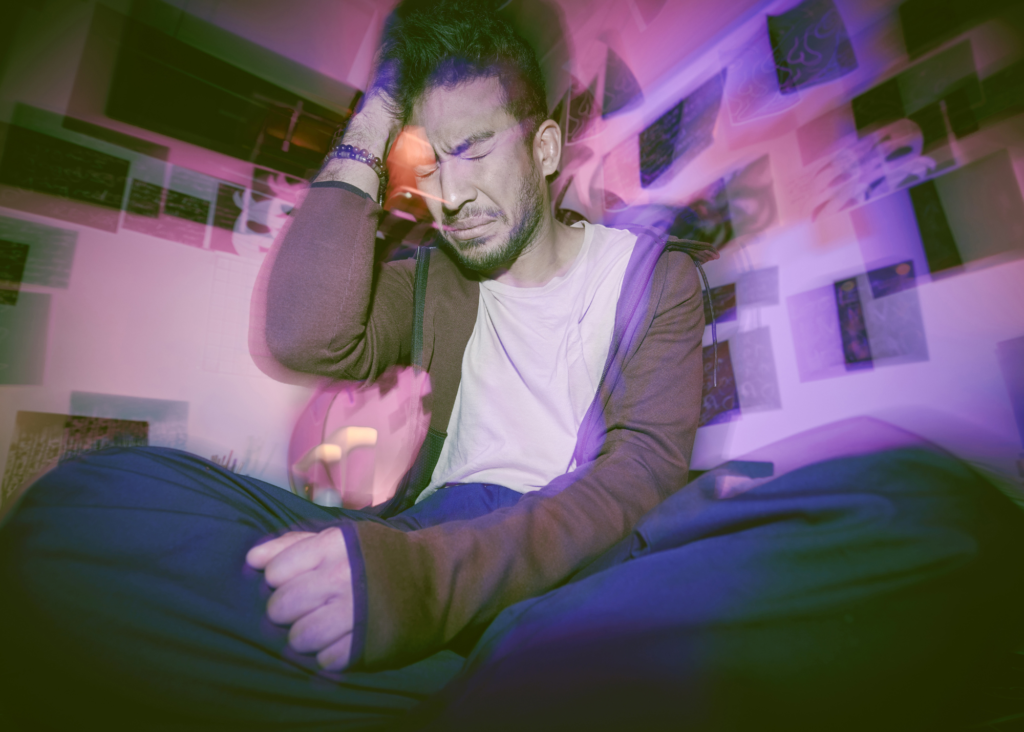In today’s always on digital world, finding moments of genuine peace can feel like chasing a mirage. Whether it’s a ping of a notification, endless scrolls of social media, technology has become an integral part of our lives, shaping how we are thinking, interact and see ourselves. But what happens when this digital life starts to blur the line between connection and compulsion? With our lives deeply intertwined with technology, it’s easy to overlook how the constant exposure to screens, notifications, and online interactions can affect our mental health.
For people living with OCD, Obsessive Compulsive disorder, technology becomes more than just convenience or distraction – it amplifies the anxiety. The instant access to information, coupled with a constant pressure of validation, often serves as a trigger, thus intensifying obsessive thoughts, and reinforcing compulsive behaviours.
Understanding the impact of the digital age on obsessive thoughts is crucial for anyone seeking to regain control and find balance in this fast-paced, tech-driven world.
The Rise of Technology and the Growth of OCD Symptoms
Technology has many conveniences but is also gives rise to new challenges like mental health. For someone with OCD, this might manifest as an endless loop of searching for “just the right” answer, checking and re-checking for mistakes, or seeking validation from online interactions.
The Need for Control: How Technology Fuels the Compulsion to Reassure
For those struggling with OCD, there’s often a deep-rooted need to control certain aspects of life, whether it’s your environment, your routines, or the way things “should” be done. Technology, particularly the digital world, can feed into this compulsion for control. The need to check messages, re-read emails, or verify facts can create a false sense of reassurance, but it doesn’t bring the relief you seek.
Instead, it keeps you trapped in a cycle of seeking certainty but never finding it. Each time you get reassurance, your mind demands more leading you to check, re-check, and obsess over minute details. The more you rely on technology to give you that reassurance, the more entrenched your OCD becomes.
Technology and Sleep Disruption: Fuelling OCD with Restless Nights
The constant use of technology also disrupts your sleep patterns. Studies have shown that excessive screen time, especially before bed, can negatively impact your ability to fall asleep and stay asleep. Lack of quality sleep can increase anxiety levels, which in turn, exacerbates OCD symptoms.
If you find yourself scrolling through your phone late at night, reading messages, or checking social media for the umpteenth time, you’re unknowingly triggering your brain’s fight-or-flight response, keeping your mind active and alert. Poor sleep further fuels obsessive thoughts and compulsive behaviours, creating a vicious cycle that’s hard to break.
Breaking Free from the Cycle: Tips for Managing OCD in the Digital Age
- Set Boundaries with Technology: Start by setting clear boundaries for how much time you spend on your devices. Try to limit your social media use and turn off notifications that constantly pull you back into the digital world. Setting boundaries allows you to regain control and prevent technology from taking over your thoughts.
- Practice Mindfulness: Mindfulness is a powerful tool to break the cycle of obsessive thoughts. By staying present and focusing on the here and now, you can start to detach from the constant stream of digital input. Practice mindfulness techniques such as deep breathing, grounding exercises, or guided meditation to calm your mind.
- Digital Detox: Take intentional breaks from technology. Try to implement a digital detox, especially in the evenings. Designate technology-free zones in your home, like the bedroom, to create a space where you can unwind and relax without the temptation to check your phone.
- Seek Professional Help: If you’re struggling with OCD symptoms that are triggered or worsened by technology, it’s important to seek professional help. Cognitive Behavioural Therapy (CBT) and Exposure and Response Prevention (ERP) are evidence-based treatments that can help you manage your OCD symptoms and regain control of your thoughts.
- Create Healthy Tech Habits: Replace obsessive tech habits with healthier alternatives. Engage in offline activities like reading, journaling, exercising, or spending time with loved ones. These activities not only give your mind a break from the digital world but also help nurture your mental well-being.
You don’t have to let technology control your mind or fuel your OCD. By understanding how the digital age triggers and amplifies obsessive thoughts, you can take proactive steps to reclaim control over your mental health.
Why not give yourself the gift of a reset? At The Beach House Goa, we offer a Digital Detox Retreat designed to help you disconnect from the digital world and reconnect with your true self. Surrounded by the serenity of nature, our retreat provides the perfect environment to unplug, recharge, and reset your mind. Through mindfulness, yoga, and digital detox practices, you’ll gain the tools you need to manage your OCD triggers and regain control over your thoughts.
Come and experience the peace of being present, rediscover clarity, and leave with a sense of calm that technology can never provide.
Disclaimer: Our content is not intended to provide medical advice or diagnosis of individual problems or circumstances, nor should it be implied that we are a substitute for professional medical advice. Users / readers are always advised to consult their Healthcare Professional prior to starting any new remedy, therapy or treatment. The Beach House – Goa accepts no liability in the event you, a user of our website and a reader of this article, suffers a loss in any way as a result of reliance upon or inappropriate application of the information hosted on our website.

